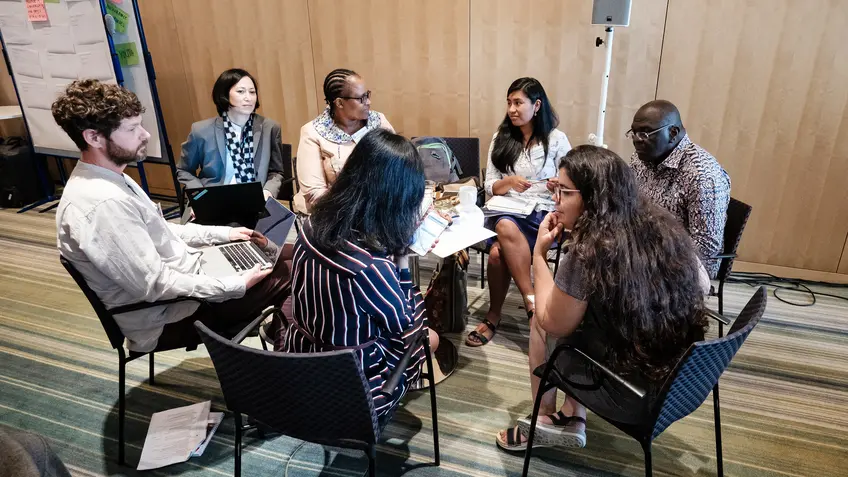New Insight Brief: NDC Partnership Experience with Multi-Stakeholder Engagement: Key Lessons Learned
Confronting the climate crisis will be possible only if entire governments, societies, and the international community work together. Different actors need to take ownership of the various aspects of climate policy; municipal authorities need to prioritize infrastructure projects, finance ministries to allocate funding towards climate-smart projects, international donors to provide technical and financial support, and civil society to support political efforts.
Multi-stakeholder engagement in climate action has many benefits. It ensures that the priorities of diverse stakeholders are reflected in plans, so that they will benefit from climate action and feel the ownership and responsibility to implement mitigation and adaptation measures. It solidifies available finance by embedding climate action in domestic budgets, as well as increasing access to domestic, international, and private finance. And it increases alignment between the climate agenda, national development agendas, and the Sustainable Development Goals (SDGs).
But communication and coordination with such a diverse set of national and international actors is not easy. That’s where the NDC Partnership – a coalition of more than 140 countries, institutions, and non-state actors – comes in. The Partnership supports governments to bring together a wide range of national stakeholders and international institutions around the planning, financing, and implementation of their NDCs. Through on-the-ground work in 50 countries, the Partnership has learned valuable lessons about how best to engage domestic and international players in nationally-led climate action.
A newly launched insight brief, NDC Partnership Experience with Multi-Stakeholder Engagement: Key Lessons Learned, summarizes some of the main takeaways from the Partnership’s multi-stakeholder consultation process. It focuses on engagement with three categories of stakeholders: representatives across government and society, ministries of finance and planning, and international institutions that provide financial and technical assistance. When coordinating within national governments, on a local level, or internationally, a few overall lessons emerge:
- Inclusivity is key. Whether it is inclusion of government ministries, civil society actors, or international donors, meetings and calls that include wide representation of those involved in climate action pay off.
- Don’t reinvent the wheel. Countries already have planning cycles and coordination bodies, ministries of finance already have budgeting processes, and international donors have long-standing priorities and in-country relationships. When NDC planning and implementation is done as part of a country’s development agenda and builds off existing processes and coordination groups rather than creating new ones, climate action is more efficient and met with more support.
- Strong leaders matter. Whether it’s a president supporting climate action, a minister of finance prioritizing NDC implementation, or a civil society leader with a persuasive message, effective leaders make a huge difference in convening relevant stakeholders and driving forward climate action.
As governments, societies, and the international community continue to develop and implement climate solutions, it is important to consider the impact of multi-stakeholder engagement on the success of these solutions. The complexity and uniqueness of the NDC Partnership’s in-country work and diversity of membership gives the Partnership an opportunity to share valuable lessons and insights regarding multi-stakeholder engagement. This insight brief highlights some of the most compelling illustrations of these lessons from the Partnership’s country work, as well as challenges to this engagement and suggested solutions. This insight brief is meant to be a tool for a range of stakeholders. It aims to share these lessons and support the multitude of actors working on global climate action.
The NDC Partnership invites you to join these discussions and share your lessons, successes, and challenges with multi-stakeholder engagement on Twitter, Facebook, and LinkedIn.
This insight brief was written by Talia Calnek-Sugin of the NDC Partnership Support Unit.
